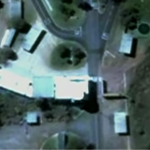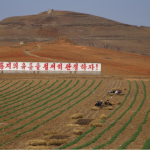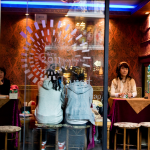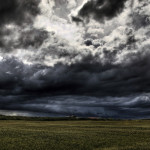- DETERRENCE: 1984 Foreign Ministry report warned of Fukushima-type nuclear scenario
- DPRK: Reforming North Korea: Law, politics, and the market economy
- GOVERNANCE AND CIVIL SOCIETY: Can South Korea lead nuclear cooperation in northeast Asia?
- CLIMATE CHANGE ADAPTATION: Climate change as threat multiplier: Understanding the broader nature of the risk
- CLIMATE CHANGE AND SECURITY: Migration, climate and security: the choice
 DETERRENCE: 1984 Foreign Ministry report warned of Fukushima-type nuclear scenario, Reiji Yoshida, Japan Times (8 April 2015)
DETERRENCE: 1984 Foreign Ministry report warned of Fukushima-type nuclear scenario, Reiji Yoshida, Japan Times (8 April 2015)
In 1984, Japan’s Foreign Ministry simulated damage from a hypothetical war-time attack on a nuclear power plant in a war and concluded that up to 18,000 people might die due to radiation exposure. The report was prompted by Israel’s 1981 strike on Iraq’s reactor. Non-state actors may be a more salient threat today.
- Is Fukushima Daiichi a target for Al-Qaida? Makiko Segawa, Shingetsu News Agency (28 May 2011)
- Ex-nuclear plant contractor charged with terroristic threats, Associated Press (28 May 2015)
- Eyewitness talks to 60 Minutes about brazen assault on South African nuclear facility, transcript, and The Assault on Pelindaba, video, 60 Minutes, CBS (20 November 2008)
 DPRK: Democratic People’s Republic of Korea and Food and Agricultural Organisation of the United Nations, Food and Agricultural Organisation of the United Nations (2011) [PDF]
DPRK: Democratic People’s Republic of Korea and Food and Agricultural Organisation of the United Nations, Food and Agricultural Organisation of the United Nations (2011) [PDF]
Given Chuseok – the major harvest festival in Northeast Asia – it is worth noting that North Korea is moving closer to food self-sufficiency. But, the overwhelming majority of North Korea’s population is dependent on extra-governmental markets, trade and international aid for food. The fact that North Korea is unable, but generally unwilling to compensate for the foodstuff short fall by buying on the international market is a matter for hot debate – outside of North Korea.
- Foreign assistance to North Korea, Mark E. Manyin and Mary Beth Nikitin, (U.S.) Congressional Research Service (2 April 2014) [PDF, 420KB]
- Factsheet on North Korea, European Commission on Humanitarian Aid and Civil Protection, (June 2015) [PDF, 480KB]
 GOVERNANCE AND CIVIL SOCIETY: Uncertain times fuel occult beliefs in China’s Communist Party hierarchy, Ben Blanchard, Reuters (31 July 2015)
GOVERNANCE AND CIVIL SOCIETY: Uncertain times fuel occult beliefs in China’s Communist Party hierarchy, Ben Blanchard, Reuters (31 July 2015)
Uncertainty in what the future may hold has led some Chinese Communist Party members to fortune tellers, with instances of a member receiving a poor fortune and months later finding himself under investigation. ROK youth have also taken a larger turn towards fortune tellers for help in making life decisions. The popularity of plastic surgery, however, is making it more difficult for fortune tellers to read the fates of the faces in front of them.
- Lean times send more young people to fortune tellers, Chosun Ilbo (22 August 2015)
- In South Korea, fortune tellers face a new wrinkle, Jason Strother, Wall Street Journal (27 April 2015)
 CLIMATE CHANGE ADAPTATION: Climate change as threat multiplier: Understanding the broader nature of the risk, Caitlin E. Werrell and Francesco Femia, BRIEFER No. 25, Center for Climate and Security (February 12, 2015) [451 KB, PDF]
CLIMATE CHANGE ADAPTATION: Climate change as threat multiplier: Understanding the broader nature of the risk, Caitlin E. Werrell and Francesco Femia, BRIEFER No. 25, Center for Climate and Security (February 12, 2015) [451 KB, PDF]
The World Economic Forum (WEF) annually produces a report measuring perceptions of global risks among its ‘multi-stakeholder community’ of global leaders in the business, government and non-profit sectors. The past two reports, ‘Global Risks 2014’ and ‘Global Risks 2015’, have both identified climate change as a ‘perceived risk’ among this community. In both reports, climate change ranked among the ‘top five’ perceived global risks, in terms of ‘impact’. Three of the other top ten risks have explicit relationships with climate change: food crises, water crises and extreme weather events.
- Global risks 2014, Ninth Edition, World Economic Forum, Geneva (2014) [360 KB, PDF]
- Global risks 2015, 10th Edition, World Economic Forum, Geneva (2015) [360 KB, PDF]
 CLIMATE CHANGE AND SECURITY: Migration, climate and security: the choice, Paul Rogers, openDemocracy (3 September 2015)
CLIMATE CHANGE AND SECURITY: Migration, climate and security: the choice, Paul Rogers, openDemocracy (3 September 2015)
‘The asymmetric nature of climate change means that these large regions surrounding one of the richest parts of the world will have the greatest difficulties. They are likely to become drivers of migration to a far larger extent, with numbers measured not in the hundreds of thousands but in millions. In these circumstances, the consequences of securitising these issues will be huge, far greater than anything yet experienced. For this reason alone, it is essential that the current crisis is handled primarily with humanitarian concern, rather than by trying to “close the castle gates” – which in any case is impossible in a globalised system.’
- The complexity challenge: the U.S. government’s struggle to keep up with the times, Josh Kerbel, The National Interest (26 August 2015)
- Two degrees of climate change may be too much, Dawn Stover, Bulletin of the Atomic Scientists (4 September 2015)
- The most extreme risks: global catastrophes, Seth D. Baum and Anthony M. Barrett, in Vicki Bier (editor), The Gower Handbook of Extreme Risk (Farnham, UK: Gower, forthcoming) (pre-print version: 5 February 2015)
The Nautilus Peace and Security Weekly Report presents articles and full length reports each week in six categories: Austral security, nuclear deterrence, climate change and security, the DPRK, climate change adaptation and governance and civil society. Our team of contributors carefully select items that highlight the links between these themes and the three regions in which our offices are found — North America, Northeast Asia, and the Austral-Asia region.
Subscribe to NAPSNet to receive free weekly email reports.
- Editor: Arabella Imhoff
Contributors:
- Deterrence: Peter Hayes
- DPRK: Roger Cavazos
- Governance and Civil Society: Dyana Mardon
- Climate Change Adaptation: Saleem Janjua
- Climate Change and Security: Richard Tanter

